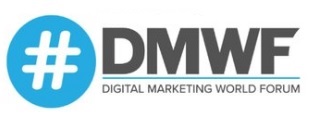
The start of 2021 has had its ups and downs, but it certainly hasn’t given businesses the hope of stability or the kick-start so many needed to start the year off on a high. In times like this, it’s easy to feel that everything is outside of your control, but the key to taking on the new year and grasping the opportunity ahead will be in the ability to spot what you can control.
Welcome to your new flagship store
Whether your business deals in goods or is service or consultancy based, one key aspect has changed since the pandemic started: your location. During the first lockdown alone, 85,000 UK businesses launched online stores or joined marketplaces. Flagship stores, Michelin star restaurants, and corporate offices have all moved into new, mostly digital homes or storefronts, which has dramatically changed the way that we meet and interact with our customers. While an in-store experience, or city-centre skyscraper might have impressed your customers before, your website is now your shop window; so it’s vital to get thinking about how you can direct traffic and, crucially, how you can convert that traffic into sales.
Better results require smarter budgets, not necessarily bigger ones
Businesses delving into the world of digital marketing in 2020 and into 2021 will have found they have an array of options available to them to ultimately drive traffic and leads. But in a year when every business has had to move their marketing budgets fully online, competition has intensified and costs have increased. For the first time in history, digital advertising on platforms such as Google, Facebook and Alibaba is set to overtake traditional ad spend (paywalled link) across media and screen, according to GroupM. For the uninitiated in particular, this influx has served to drive up complexity in the already-confusing digital marketing space.
While digital ads can yield great results, the key to success when embarking on any marketing programme is defining your strategy. Knowing who you’re trying to reach and being clear on your success measures are crucial for staying on course. For those businesses who haven’t clearly defined their goals, it is all too easy to sink budgets into plug-and-play digital advertising options without attaining the real customer engagement you need to help your business stay afloat and thrive.
For small and medium size businesses in particular, the pandemic has brought with it a year of uncertainty and instability, meaning this has not necessarily been the ideal year in which to pump budgets into testing out which digital marketing channels will deliver ROI. That’s why in a year of change, it’s important for marketers to start taking a look inward, rather than externally, to find other ways to connect with their customers in a meaningful way. And what better place for them to start than their own website.
Why site search is the marketing tool of 2021
An exceptional site search experience is a surefire way to connect with people who have self-identified as being interested in your business, your products or service. The trick to getting site search to that optimal point is in focussing efforts on ensuring your website is a hub for all the answers to questions they might have about what you offer.
If we think about your website as a shop floor, once the customer has arrived, you want to do everything you can to convert a visit into a customer – and preferably a recurring one. In the physical world, you can approach the person to understand their needs and answer their questions, but on your site you can only rely on your digital presence to help convert interest into action. That’s why it’s crucial to ensure that your website is as optimised as it can be to answer customer questions at the right point in their journey – the point of intent. If your site offers them reams of blogs or irrelevant and outdated blue links in your search pages in response to a question they have, their next move will likely be to hop back to Google instead, and Google might well divert them elsewhere.
In many ways, leveraging a best in class site search experience on your website has its own rightful space within the marketing mix. Unlike SEO, which is reactive and relatively static, site search can be an active and flexible marketing tool when working with the right technology partner. It can actively listen to what your customers are asking about you, and can inform your response and strategy effectively. You might find a key question that your potential customers are asking is something you can confidently answer for them or optimise your site to display more easily for them. Search arms you with that inside knowledge and allows you to make some truly game-changing steps, without breaking the bank.
In 2021, enhancing the search experience of your website will be integral to providing the customer experience that users have come to expect elsewhere online, and could easily be the deciding factor in driving the success your business deserves this year.

Interested in hearing leading global brands discuss subjects like this in person?
Find out more about Digital Marketing World Forum (#DMWF) Europe, London, North America, and Singapore.







It is true that now all companies compete with each other, regardless of their location, because we order everything online anyway